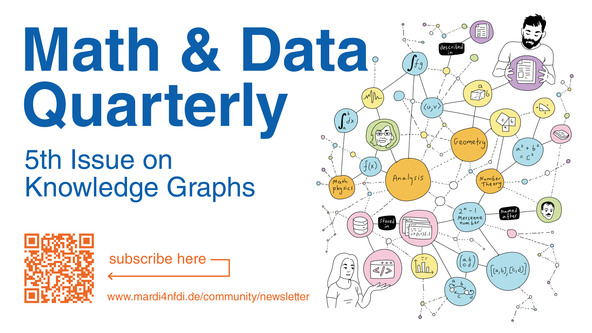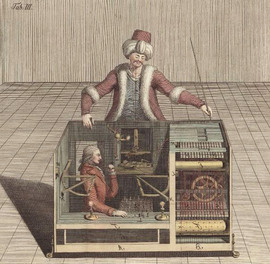MaRDI is a Germany-wide initiative to address challenges in mathematical research. It is aimed mainly at mathematicians to change how we do mathematics using FAIR (Findable, Accessible, Interoperable, and Reusable) research data. This way, it fits very well with our own open-source philosophy.
IMAGINARY actively participates in this initiative by assisting in communicating and promoting the project to diverse audiences. We just released the fifth issue of the MaRDI Newsletter “Math & Data Quarterly”. It offers news and insights into the realm of mathematical research data.
The initial four issues of the newsletter explored the FAIR principles:

(Illustration by Constanza Rojas-Molina, licensed under CC BY-NC-SA 4.0.)
In the fifth edition, we focus on a topic that utilizes FAIR data and incorporates the FAIR principles into data infrastructures: knowledge graphs.
Knowledge graphs are dynamic and sophisticated data structures that organize information in a graph format, consisting of interconnected nodes and edges. They emulate human thought processes, allowing for a more intuitive representation of data and enabling efficient data retrieval and analysis. With their ability to capture semantic context and facilitate complex relationships, knowledge graphs have become valuable in fields such as mathematics, science, and artificial intelligence.
For those interested in delving deeper into knowledge graphs and their impact on mathematical research, the MaRDI newsletter offers valuable insights and resources. In each newsletter, an episode of the interview series “Data Dates” is published, as well as news about the MaRDI universe and other NFDIs. The newsletter always closes with reading recommendations on the featured topic, including videos, links to databases, or even comic collections.
Read the newsletter here, and subscribe here.

(Illustration by Ariel Cotton, licensed under CC BY-SA 4.0.)






